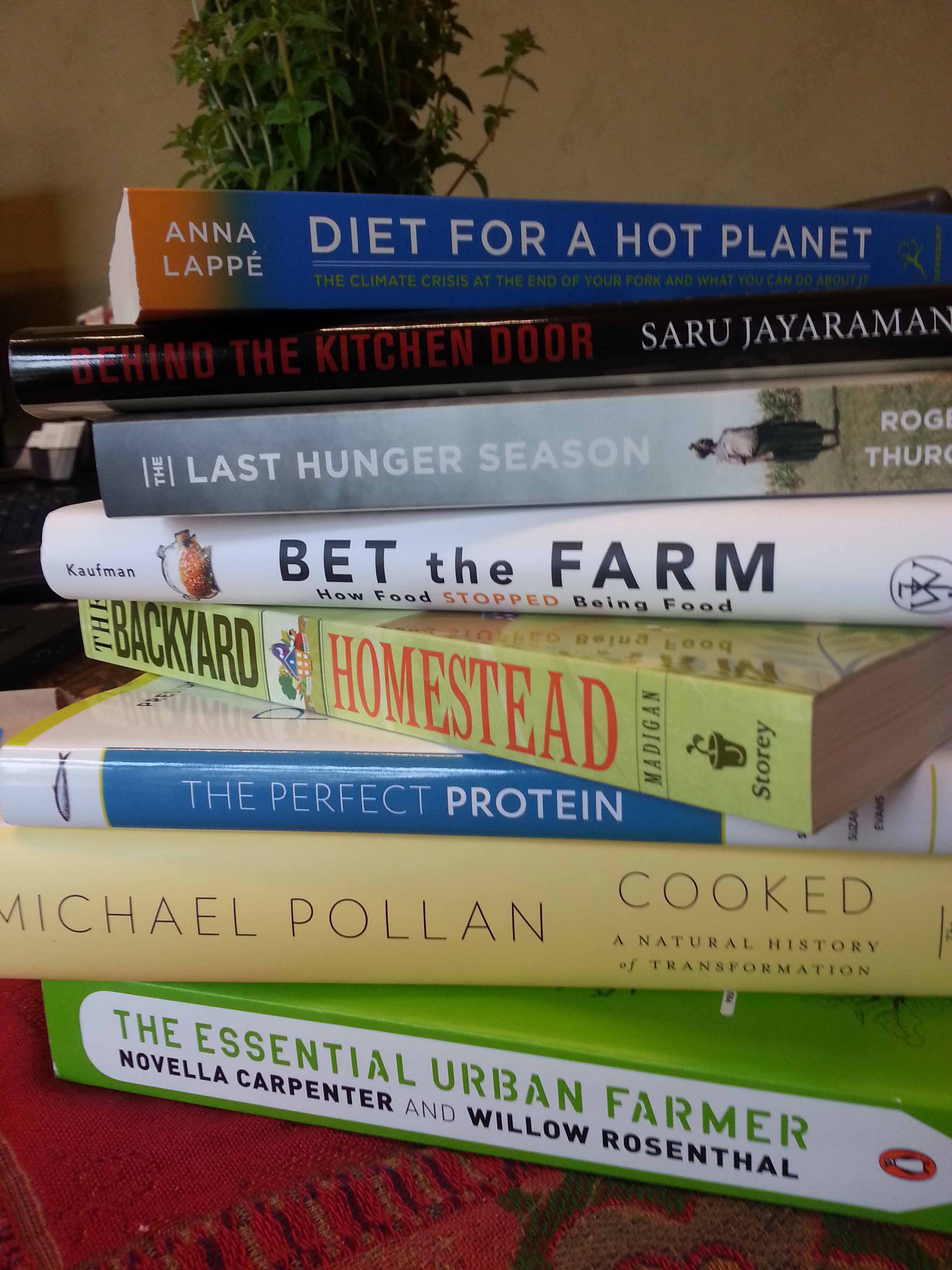
Summer Reading: Perspectives on “Behind the Kitchen Door”
Summer Reading: Perspectives on “Behind the Kitchen Door”
- posted on: August 8, 2013
- posted by: 21 Acres
"*" indicates required fields

When I first glanced at Behind the Kitchen Door, a book written by Saru Jayaraman, I thought this was going to be an eye-opening experience for what employees do with food prep, serving, and other kitchen tasks that would be hidden to the customer. I enjoy going out to eat just like the next person so it would be great to figure out the mystery of food practices in the restaurant that will essentially affect my enjoyment of food and my health. I think consciously about where my food comes from and I ask a lot of questions of food service employees since I’ve seen so many food documentaries about the insanities of the food system and I want to make sure I’m being told the truth about fresh, local, or organic ingredients. I also sometimes find it difficult to really trust the food system when American consumers can be presented with confusing marketing messages on menus and food labels using words such as ‘’natural” and “organically grown.” Jayaraman talks about how restaurants advertise “slow food” which is organic, sustainable, and humanely grown, but it could just be a lie to get the customer to like what they are hearing/reading to buy that product.
It’s also hard to trust what the chef or other kitchen staff is doing to my food behind the kitchen door since I will never know about it while I sit patiently in the dining room. I may thoroughly enjoy my meal, or end up with an upset stomach later that evening. There have been stories after stories of friends and family getting sick from restaurants or even seeing the unsanitary actions from kitchen staff such as not using gloves, not washing their hands after sneezing, or picking up food from the ground and putting it back on the plate. This book, however, came to a surprise to me because it wasn’t necessarily about the unclean practices and cooking methods in restaurants. It’s about something else vitally important; sustainability in the workplace for employees.
We, as customers and consumers, should be aware of what is happening behind that kitchen door because I know for a fact that I don’t want my food being expired, under-cooked, dropped on the ground, or spat on. We should enjoy eating out and know that the restaurant practices sustainable methods for their workers so we know that the food is safe to eat. In Behind the Kitchen Door, Jayaraman talks about the prevalence of corrupt management of restaurants, how workers are abused, exploited, and discriminated against, and how workers need to have fairness and equality in the restaurant business. I learned my lesson by not judging a book by its cover, but I can tell you that I can see why this book is a must-read for all people who go to restaurants.
As customers and consumers, we need to be aware of how dishwashers, bussers, waiters, and chefs are treated in a restaurant. We need to know that the employees are people just like you and me, so they need to be treated with respect and to not be taken advantage of. Sustainability needs to happen inside the workplace for livable wages, paid sick days off, and fair and equal practices for all employees. This book elaborates time and time again that if the staff is not happy, that is going to affect the food the customers’ eat. For example, if a waiter is scheduled to work over 50 hours a week, getting their wages cut for mishaps that are not their fault, and being told to cut corners when it comes to food safety all in a fast-paced environment; could you really trust that your food is safe to eat? Would you want to support a business that exploits, abuses, and discriminates their employees? Behind the Kitchen Door shares stories of individuals who have worked in the restaurant business that have been treated unfairly by others. Saru Jayaraman works at helping these individuals have a voice to fight back against an unjust system through peaceful protesting and strongly advocating for worker rights through the Restaurant Opportunity Center (ROC).
Behind the Kitchen Door will enlighten consumers to think more about their restaurant experience and to be aware of unfair treatment of employees. Jayaraman says that if you, a customer, see a violation in the workplace then you should tell the manager that it’s unacceptable and it should be changed. Saru Jayaran said, “If consumers can compel hundreds of thousands of restaurants in the United States to serve more organic, locally sourced foods, then surely we can push restaurants to be honest about their ‘slow-food’ claims and labor practices. The quality of our food – and our health – depends on it.”
At 21 Acres, we strive to create, share, and progress knowledge of environmental issues and sustainability. This includes the types of messages and practices that Saru Jayaraman defines in her book. Livable wages, diversity, equality, and sustainability create happy workers, wonderful educational experiences, and amazing food!
– Aaron










 back to blog overview
back to blog overview








